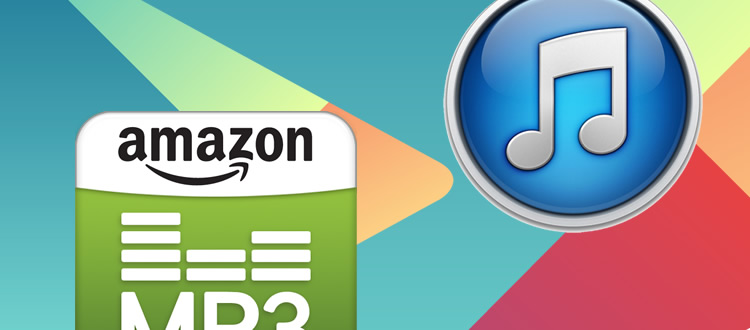
The Apple iPod, introduced in 2001, may be the device most responsible for sparking the digital music era. And now, over a decade later, consumers have access to a wide variety of digital music made available by download through a variety of sources. However, three vendors in particular — Apple's own iTunes Music Store, Amazon, and Google Play — stand above the rest.
But despite this triumvirate of digital music stores backed by major international brands, only one truly dominates the market. And that is, of course, iTunes. According to data from the NPD Group, about 63% of all digital music sales occur through iTunes. That accounts for 8 out of 10, or 80%, of digital music shoppers — and that 80% is likely overpaying.
iTunes Dominates, But Amazon Is Cheaper
For many people, buying iTunes music is an act of convenience. However, through our daily deal hunting, we have discovered that Amazon more frequently offers discounts on MP3 downloads. Regardless, people are still overwhelmingly buying from iTunes, which rarely — if ever — slashes the price on its digital wares. Thus, we set out to see just how much the convenience of downloading music through the iTunes Music Store is costing consumers.
Over the course of four weeks, our staff noted the prices on a variety of singles and albums at iTunes, Amazon, and Google Play. Each week, we checked the prices of Billboard's top 20 singles and albums, as well as CMJ's top 20 albums (to account for indie offerings). The results of this research show that Amazon offers a better album price than iTunes 77.5% of the time. For shoppers who are primarily interested in Billboard's top albums, then Amazon music downloads are cheaper a whopping 84% of the time.
Albums That Are Up to 50% Less
Of course, there's a caveat; music from Amazon, as well as Google Play, is cheaper largely because both stores tend to offer albums that are just 50 cents less than iTunes, by default. For some people, this half-dollar difference is negligible and won't impact where they buy music online.
However, when considering the average price difference of the 160 albums we checked across the stores, Amazon's albums were $1.08 cheaper. Thus, for a shopper who doesn't want to think about his purchases, always opting for Amazon would, over time, net an average savings of about $1 per album purchased. On a case by case basis though, the savings can be more substantial. For the music we compared, Amazon offered prices that were up to 50% cheaper than those from the iTunes Music Store, which translated to a savings of as much as $6 per album.
It's important to note that like Amazon, Google Play is also frequently cheaper than the iTunes Music Store. However, unlike Amazon, Google's digital music prices mostly adhere to the 50-cents-off trend. As such, the average savings of the 160 albums we checked was only $0.58; to boot, Google Play rarely offers significant price cuts like Amazon does. So while you can comfortably get cheaper albums through Google Play than you can via the iTunes Music Store, you're unlikely to find sweeping weekly sales that knock up to 50% off albums.
Deep Discounts Skip the Singles Market
Not surprisingly, this relationship in which Amazon and Google Play are cheaper than iTunes doesn't apply to the always-popular MP3 download, the single. When checking Billboard's top 20 songs, across the board, the three best music download sites almost always charged $1.29; Amazon Music and Google Play were only cheaper than iTunes 7% of the time.
Forgoing discounts on singles makes sense from a business perspective, as it's much easier for a seller to market single MP3s than full albums. As such, music download sites have little incentive to discount the most in-demand MP3s. Unfortunately for the consumer, this means that deal hunting for popular singles is largely a fool's errand. Another way to look at it, however, is this: if you ever see a top single priced at less than $1.29, then you can be fairly certain that it's a rare discount and worth snatching up.
The Bottom Line
No matter how you slice it, shoppers who blindly buy music online through the iTunes Music Store are missing out on significant savings. According to Nielsen SoundScan, U.S. shoppers bought 111.7 million digital albums in 2012; if 63% were sold through iTunes, as the NPD Group report suggests, that's 70.3 million albums sold by Apple. However, if albums bought through Amazon are on average $1 cheaper, then in theory, Americans paid a cumulative $70.3 million more than they needed to on digital music. While purely speculative, it's a staggering thought.
Just as there is no one right way to stream music, there is no one best music download site. This reality makes it all the more important for consumers to know where their money is best spent when buying music online. While many people opt to buy from iTunes out of convenience, there's no denying the fact that a shopper who doesn't at least check Amazon — and, to a lesser extent, Google Play — before downloading music online is also sacrificing savings.
Republished with permission. Lindsay Sakraida is the dealnews Features Director. She specializes in writing about shopping trends and lifestyle subjects.